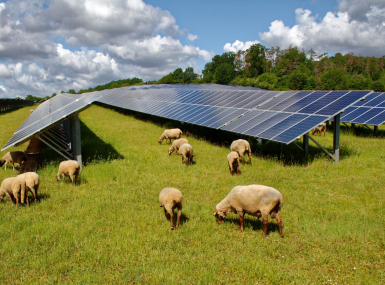Urge Our Federal Partners to Consult with County Officials in the Implementation of the Inflation Reduction Act (IRA)

Author

Charlotte Mitchell Duyshart
Upcoming Events
Related News
Action Needed
Urge our federal partners to coordinate and consult with county officials throughout the implementation of the Inflation Reduction Act (IRA/P.L. 117-169).
Background
On August 16, 2022, President Biden signed the Inflation Reduction Act (IRA/P.L. 117-169) into law. The IRA is the largest investment in climate and energy in U.S. history and seeks to reduce greenhouse gas emissions by 40 percent below 2005 levels by 2030. It does so through several different financing mechanisms including tax incentives, rebates, grants and loans, each of which offer funding opportunities for counties and their residents to save money while also reducing emissions.
The law makes investments in areas related to energy generation and supply, clean manufacturing, electrification of commercial and residential housing, addressing air pollution, clean transportation, agriculture and rural affairs and resiliency.
Local governments play a crucial role in responding to climate change and reducing national emissions levels through the deployment of clean energy, enhancing energy efficiency and promoting sustainability, among other activities. Many counties engage and partner with local utilities in energy planning, including utility-scale renewable energy projects, key regulatory issues, grid modernization and storage and energy assurance strategies.
As the federal government works to implement the IRA, counties will be able to access these funds through several different mechanisms including:
- Tax incentives
- Grants
- Loans
Key Talking Points
- Local governments play a critical role in responding to climate change and reducing national emissions levels through the deployment of clean energy, among other initiatives.
- Intergovernmental and cross-sector collaboration between federal, state and local partners is critical to ensuring the development and deployment of accessible and affordable clean energy.
- Among our numerous responsibilities, environmental stewardship is a primary function of county governments. This includes revitalizing contaminated sites to ensure safe and equitable neighborhoods, providing waste and recycling services to minimize pollution and implementing land use and energy policies to promote sustainable communities.
Related News

Counties navigate control of siting, permitting for renewable energy
Local control is at risk where states see the opportunity to take the wheel on siting energy development projects.
